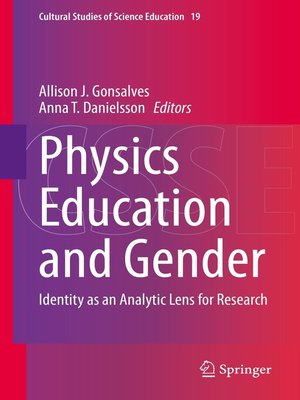Physics Education and Gender
ebook ∣ Identity as an Analytic Lens for Research · Cultural Studies of Science Education
By Allison J. Gonsalves

Sign up to save your library
With an OverDrive account, you can save your favorite libraries for at-a-glance information about availability. Find out more about OverDrive accounts.
Find this title in Libby, the library reading app by OverDrive.



Search for a digital library with this title
Title found at these libraries:
| Library Name | Distance |
|---|---|
| Loading... |
This Edited Volume engages with concepts of gender and identity as they are mobilized in research to understand the experiences of learners, teachers and practitioners of physics. The focus of this collection is on extending theoretical understandings of identity as a means to explore the construction of gender in physics education research.
This collection expands an understanding of gendered participation in physics from a binary gender deficit model to a more complex understanding of gender as performative and intersectional with other social locations (e.g., race, class, LGBT status, ability, etc). This volume contributes to a growing scholarship using sociocultural frameworks to understand learning and participation in physics, and that seeks to challenge dominant understandings of who does physics and what counts as physics competence. Studying gender in physics education research from a perspective of identity and identity construction allows us to understand participation in physics cultures in new ways. We are able to see how identities shape and are shaped by inclusion and exclusion in physics practices, discourses that dominate physics cultures, and actions that maintain or challenge structures of dominance and subordination in physics education. The chapters offered in this book focus on understanding identity and its usefulness in various contexts with various learner or practitioner populations. This scholarship collectively presents us with a broad picture of the complexity inherent in doing physics and doing gender.







